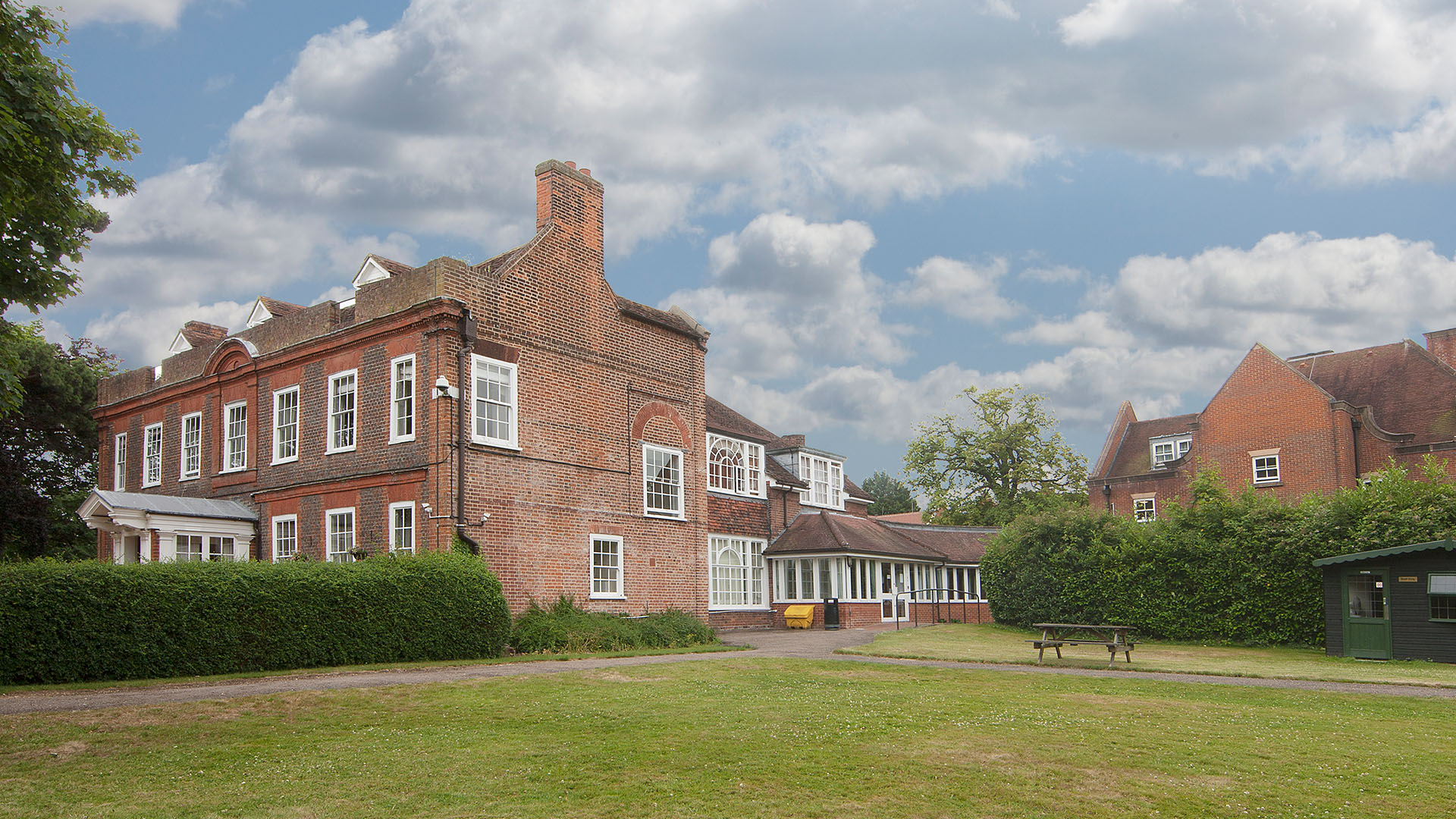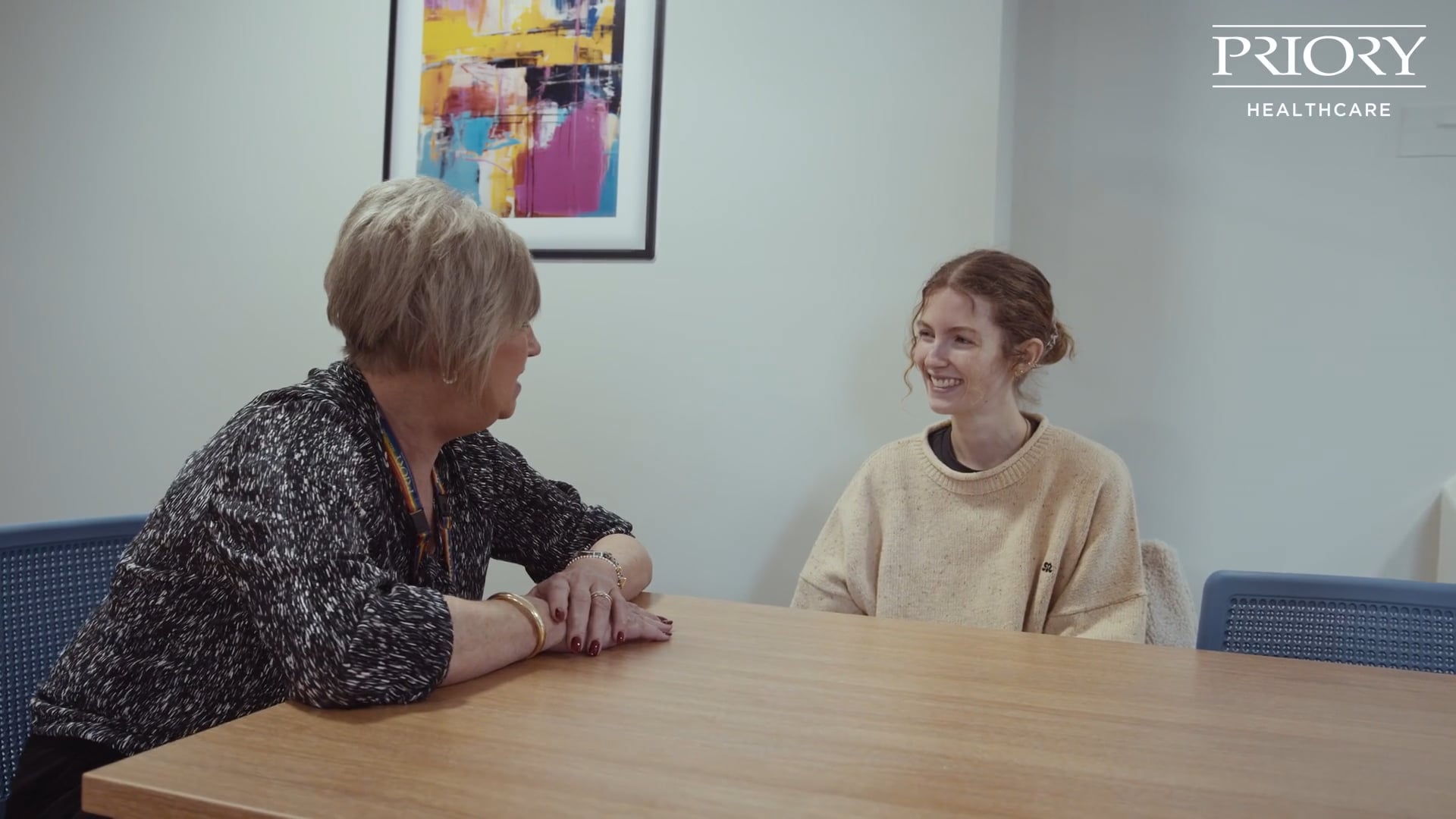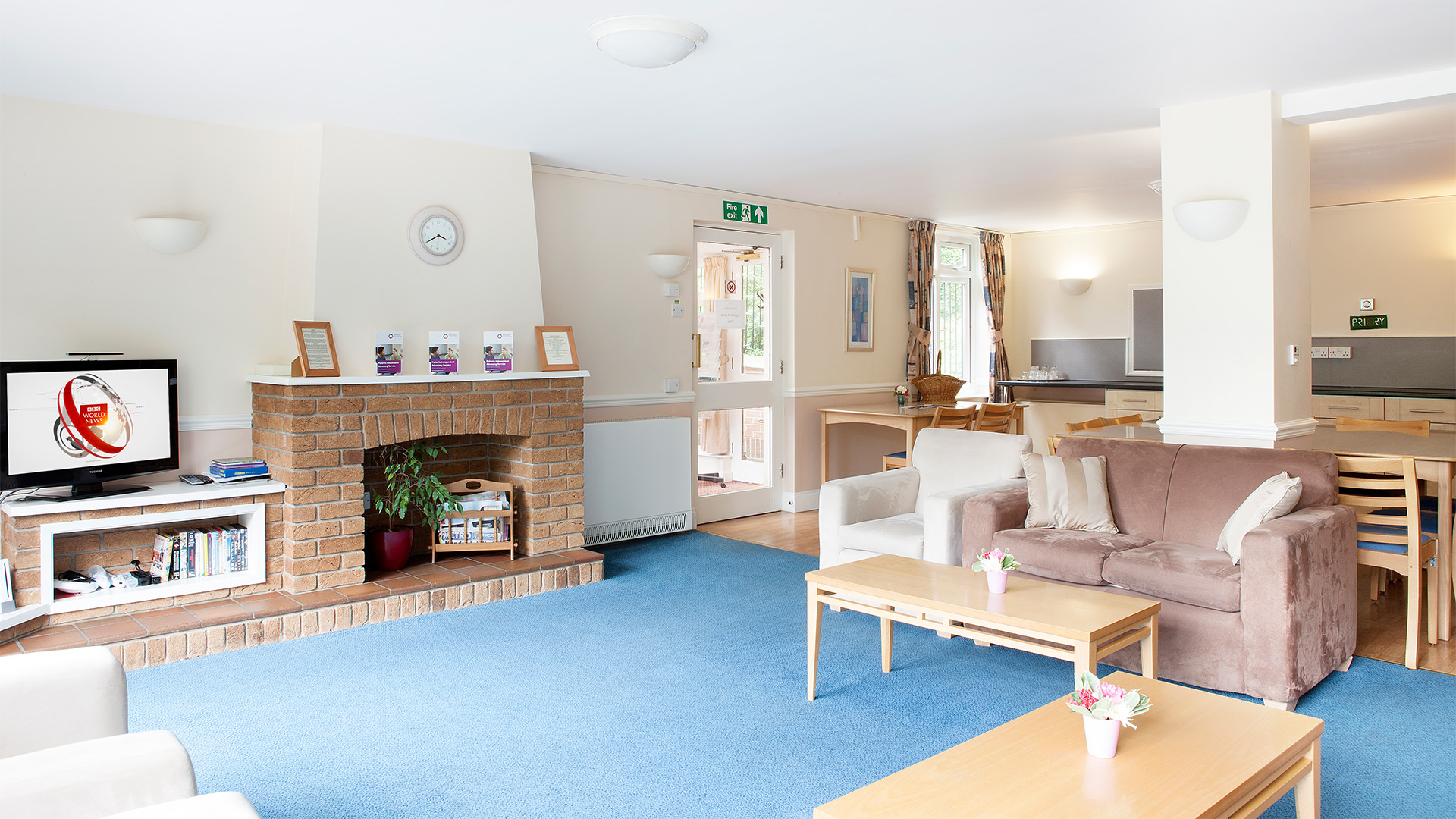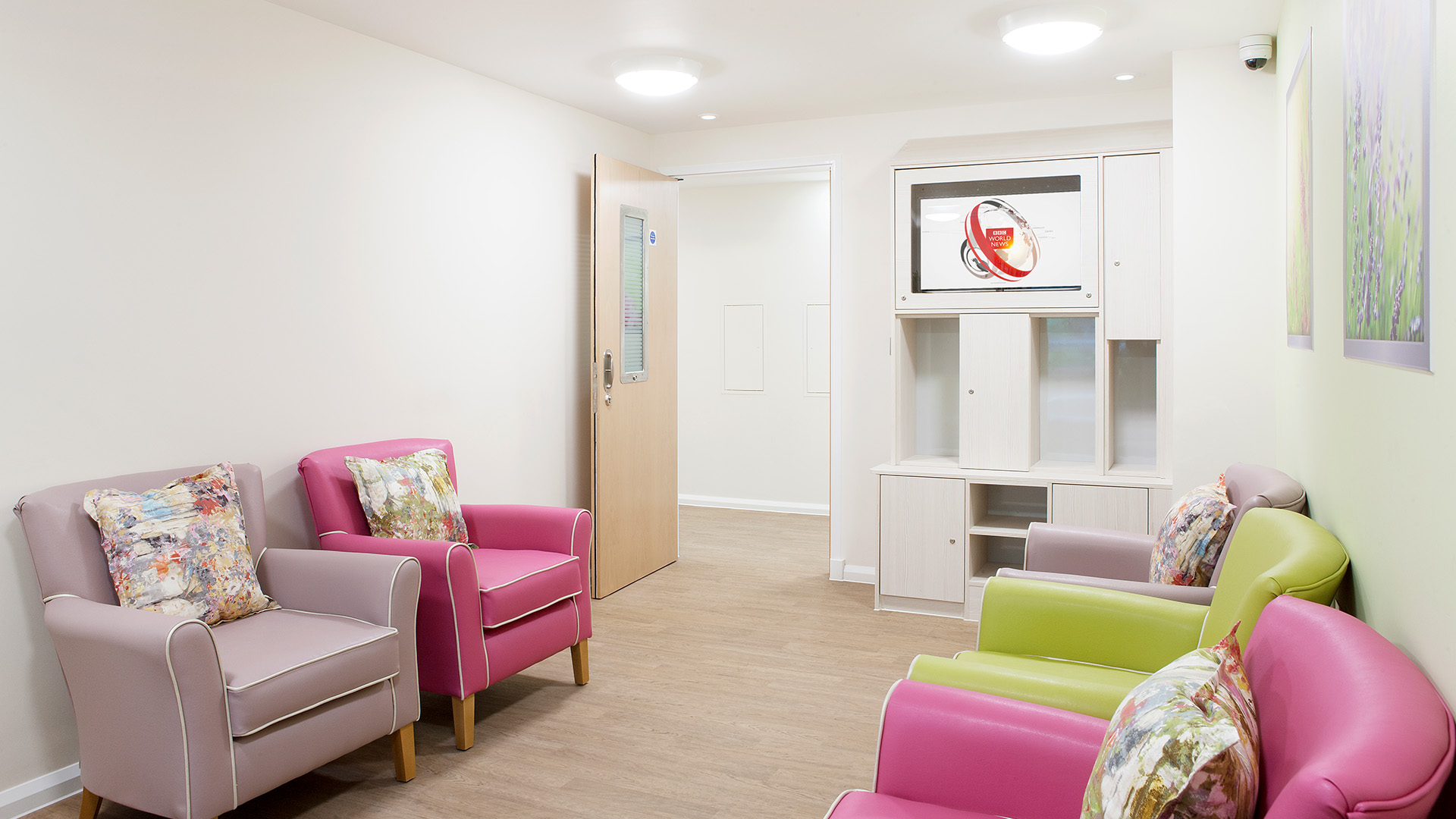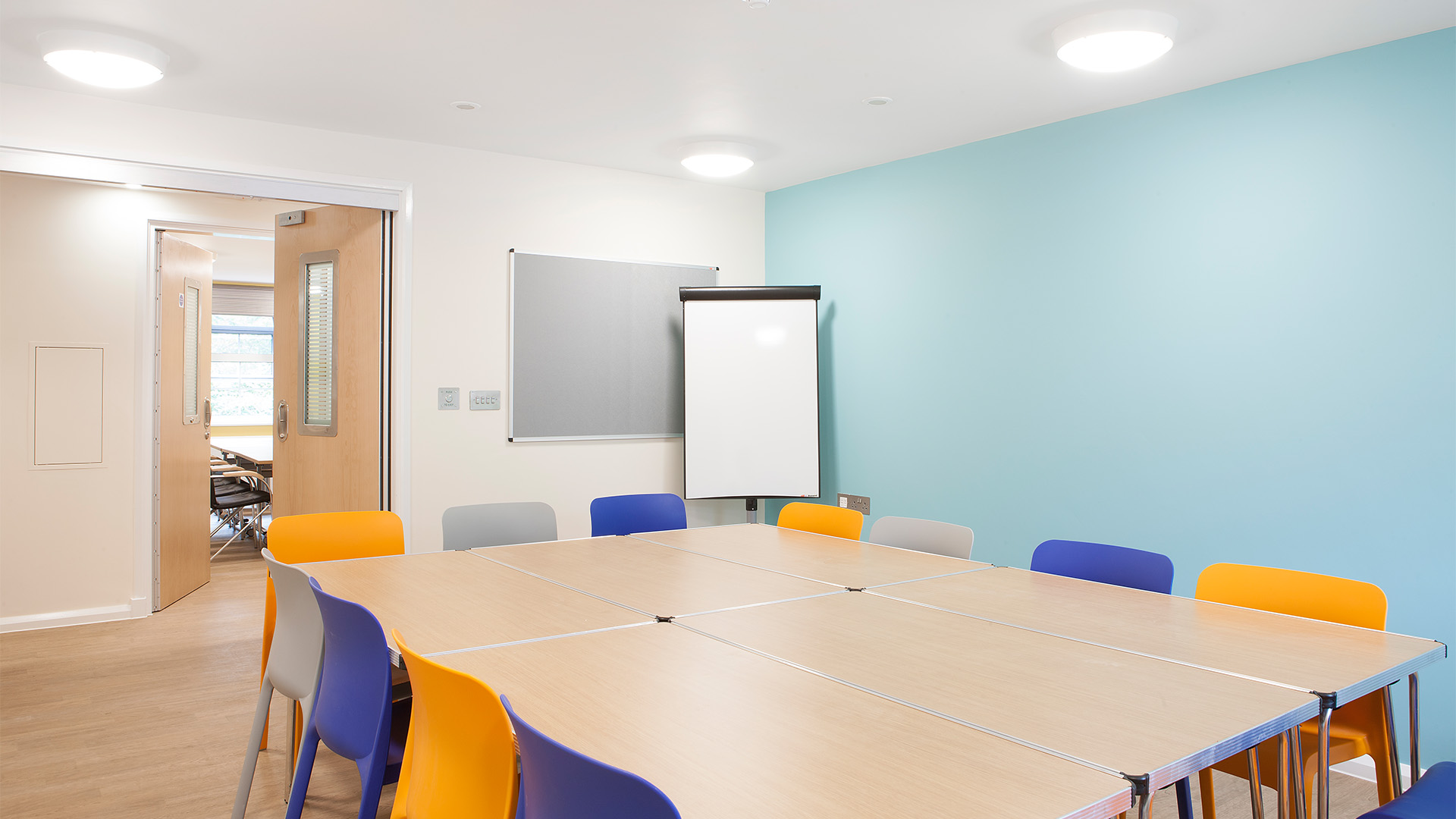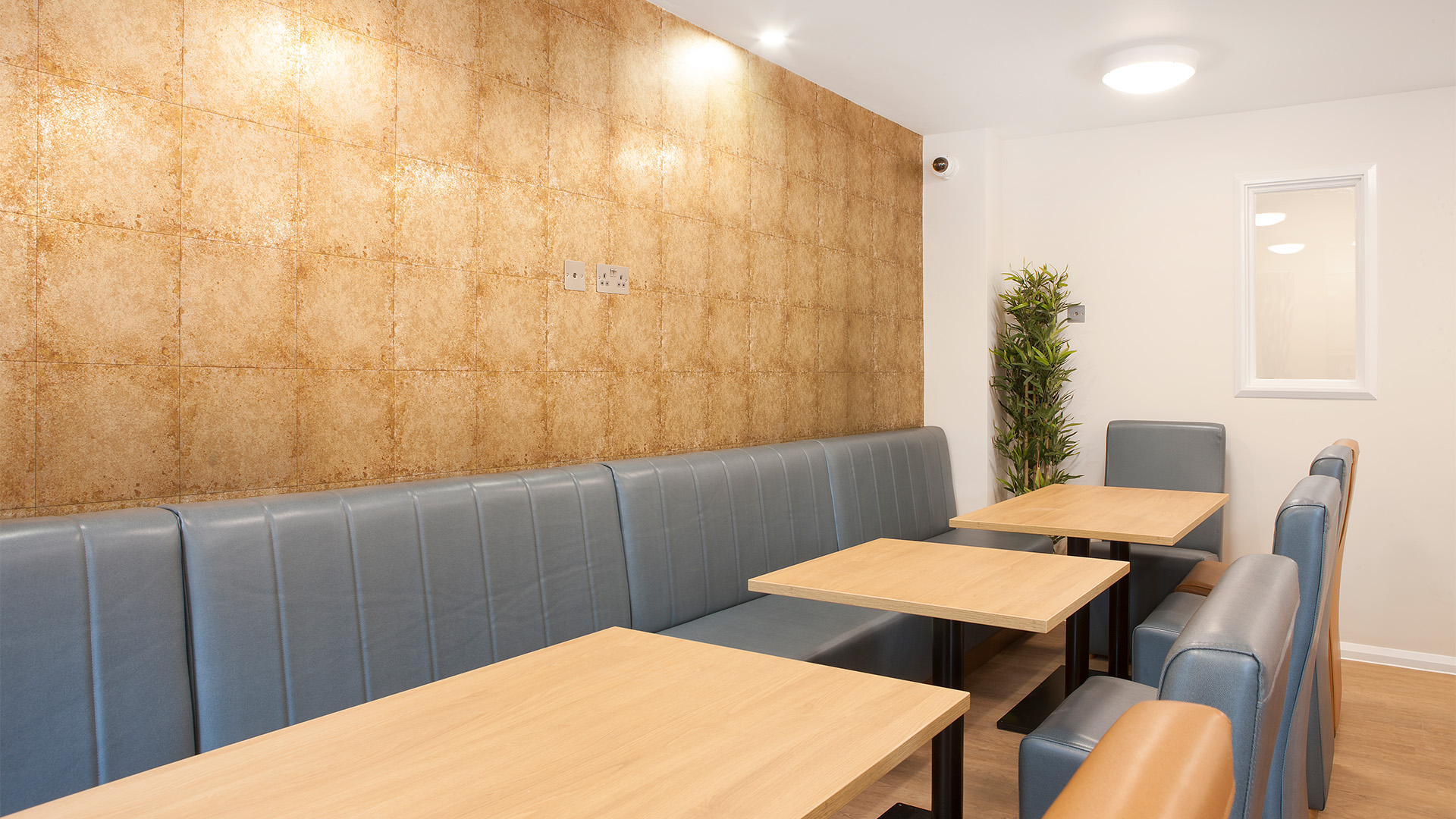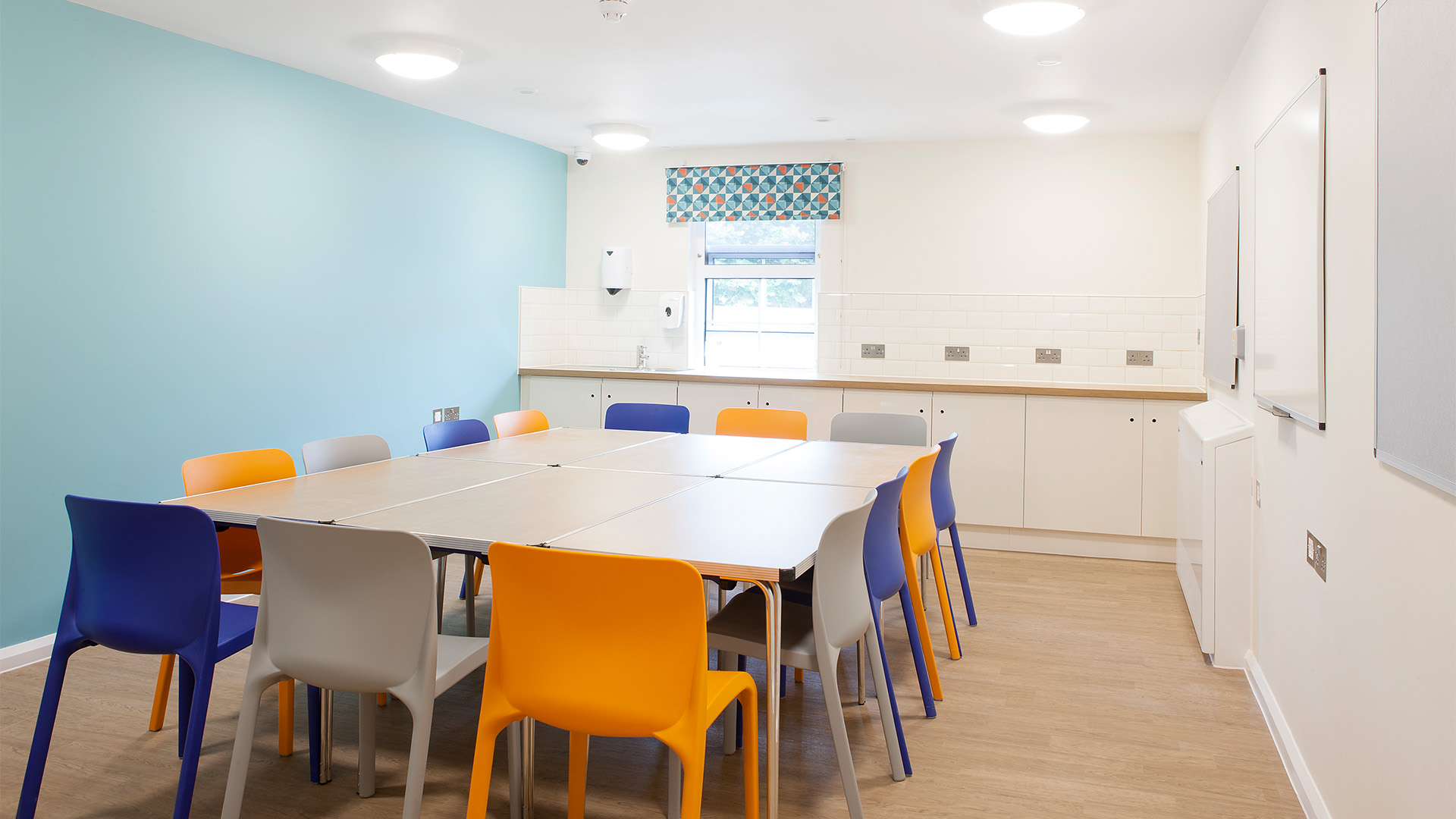About this location
Set within a beautiful and tranquil environment in Essex, and based within a Grade II listed building, Priory Hospital Chelmsford can support adults with acute mental health needs and eating disorders.
Priory’s acute and PICU services aim to allow more people to be treated closer to home and we support the NHS to repatriate out-of-area patients back to local areas.
Services at a glance
Contact us
Click here to enable this content
Services
Our acute services offer round-the-clock assistance in times of emergencies. Our specialist inpatient acute teams are committed to providing the highest quality of care, supporting patients with a wide range of mental health conditions in safe and highly therapeutic environments.
Ward break down
- Danbury Ward – 17-bedded acute ward for females
Conditions treated
We are able to support people with:
- Complex mental health needs
- Personality disorders
- Depression
- Anxiety
- Bipolar disorder
- Psychosis
- Self-harm
- Substance misuse
- Schizophrenia
We can also support people who have a learning disability alongside their primary diagnosis.
In addition, we can support people with physical disabilities, although this depends on their level of mobility. The ward is split over two floors with no wheelchair access., so people will need to be able to move up and down the stairs independently.
We can support informal patients or those detained under the Mental Health Act (MHA).
Treatment approaches
At Chelmsford, we offer an individualised, person-centred approach to all of our patients. The people who come to stay with us take a lot of reassurance from our beautiful and tranquil hospital environment. We are committed to helping people to tackle their mental health conditions, improve their physical and psychological wellbeing, and return to the healthy and fulfilling life that they deserve.
Our assessment and treatment options are overseen by a full and diverse multidisciplinary team (MDT), and we are able to offer occupational therapy (OT) as part of our care programmes.
People tend to stay with us on a short-term basis; the average length of stay is 28 days.
Our team
- Ward managers
- Registered mental health nurses
- Healthcare assistants
- Occupational therapist (OT)
- OT assistant
- Consultant
- Specialty doctor
- Out of hours doctors
Therapeutic and community-based activities
We offer a range of therapeutic and community-based activities as part of a full treatment programme. We want to support people to become more confident and independent, preparing them to move through their treatment pathway towards community living.
Our therapeutic and community-based activities include:
- Mindful colouring
- Walking
- Yoga
- Video games
- Arts and crafts
- Wellbeing and coping skills
- Music group
- Board games
- Film afternoons
- Movie nights
Our facilities and environment
Our bedrooms
Exclusion profile
- People under the age of 18
- People with a history of arson
- People with a history of sexual offending
- People who have a primary diagnosis of autism
- People who have a primary diagnosis of a learning disability
Pathways
Priory’s network of high quality facilities enables us to offer joined-up care pathways with our dedicated residential services. We offer programmes which integrate healthcare treatment and therapy, which are tailored according to individual needs, in an appropriate setting. Our strength is that we can provide a seamless transition for the individual as they progress between higher and lower dependency services.
We support the people we care for to move into other services, when appropriate. We can support people to step down into our nearest rehabilitation and recovery (R&R) service, Priory Hospital Kneesworth House, when they are ready and if it is appropriate. We can also support people to step down into Priory Adult Care residential services, where appropriate, with the nearest being Penfold Lodge.
Priory is the UK's largest independent provider of adult eating disorder services and we pride ourselves on offering quality, personalised treatment for every person we support.
Ward break down
- Springfield Ward - 14 bedded ward for adult males and females with an eating disorder diagnosis
Conditions treated
We are able to support people with:
- Anorexia nervosa
- Bulimia nervosa
- Binge eating disorder (BED)
- Other specified feeding or eating disorders (OSFED)
- Acute mental health needs
- Physical health needs
We can also support people who present with the following challenges alongside their primary diagnosis, on a case-by-case basis:
- Autism
- A learning disability
We are able to support informal patients or those detained under the MHA.
Treatment approaches
At Chelmsford, we offer an individualised, person-centred approach to all of our patients. Our aim is to work with people staying with us and their families to help them reach a healthy body weight that enables them to manage activities of daily living in their own environment. We are committed to offering a comfortable, friendly and understanding environment to everyone we support.
Our eating disorder service operates in conjunction with NHS England and the East of England Provider Collaborative to support the NHS to provide treatment beds within a patient’s locality. This enables carers and families to continue to support the individual on their recovery journey.
Our assessment and treatment options are overseen by a full and diverse MDT.
We offer:
- Cognitive behavioural therapy (CBT)
- OT
- Group programmes
- 1:1 therapy
- Family therapy
- Trauma informed therapy
- Psychoeducation
- Emotional regulation
We specialise in nasogastric (NG) feeding and percutaneous endoscopic gastronomy (PEG). We are also accredited by the Quality Network for Eating Disorders (QED).
Our placements are medium term and people tend to stay with us for 4 to 6 months, on average.
Our team
- Ward managers
- Registered mental health nurses
- Healthcare assistants
- OT
- Consultant
- Specialty doctor
- Out of hours doctors
- Dietitian
- Family therapist
- Social worker
- Psychologist
- Psychology assistant
Therapeutic and community-based activities
We offer a range of therapeutic and community-based activities as part of a full treatment programme. We want to support people to become more confident and independent, preparing them to move through their treatment pathway towards community living.
Our therapeutic and community-based activities include:
- Arts and crafts
- Walking
- Creative writing
- Meditation and relaxation
- Community life skills
- Quizzes
- Pamper sessions
Our facilities and environment
We provide:
Our bedrooms
We provide:
Exclusion profile
- People under the age of 18
- People with a history of arson
- People with a history of absconsion
- People with a history of sexual offending
Pathways
Priory’s network of high quality facilities enables us to offer joined-up care pathways with our dedicated residential services. We offer programmes which integrate healthcare treatment and therapy, which are tailored according to individual needs, in an appropriate setting. Our strength is that we can provide a seamless transition for the individual as they progress between higher and lower dependency services.
We also provide transitional, rehabilitation, step-down services at Althea Park House and Chiltern Park House. They are for people who no longer require a hospital environment, but are not quite ready to move into their own home in the community.
A message from our site leader

At Priory Hospital Chelmsford, our team work with compassion and kindness to develop recovery orientated care plans. We provide a range of treatments, suitable to the needs of the people we care for, and in line with national guidance and best practice. We actively involve patients, families and carers in care decisions and the running of the service
Priory Hospital Chelmsford’s site leader
Comments from our patients and their family and friends
The staff are really friendly and the ward is nicer than other NHS units I’ve been in. The food is really good, I love it. I feel safe here compared with other hospitals
Information for family and friends
How do home visits work?
We have a recovery-focused approach to care, and include carers and family members throughout our planning process. This includes leave from hospital, both in the local community and home visits. Any home visits or leave are risk assessed by the MDT and the views of our patients and their support network are taken into account.
What is your visitation policy?
We allow visitors on-site and we have a designated visitors’ hut within the grounds of the hospital. We also allow visits to take place within the wards and operate a booking system, which is risk assessed by the MDT.
Will I be involved and kept up to date with my loved one’s care and wellbeing?
We liaise with family members to ascertain when they would like contact from the ward, and how they would like this to take place, in terms of the type of information they want and the frequency of contact. This is all determined by consent to share information and what access the patient has consented to.
Will my loved one be able to have a phone or call me?
All of our wards have cordless ward phones to enable people staying with us to keep in contact with their family members. People are also allowed to keep their own mobile phones.
What type of things are families expected to provide, and what is provided by the home?
As part of our welcome pack, we provide a list of what families need to bring and also any restricted or banned items. We also provide all bedding and basic furniture.
Within our eating disorder service, all bedrooms have a TV. In our acute services, there is access to a communal TV. Please note, we do not permit people to bring their own TV.
What are the bedrooms like?
All of our bedrooms are furnished, en-suite and single occupancy.
The bedrooms on our acute ward are designed to a safer room specification. Within our eating disorder service, most of our bedrooms are not designed to a safer room specification, which encourages recovery on the ward. This is due to the fact that people within our eating disorder service tend to stay with us for longer than those within our other services.
Are external doors kept locked?
All external doors are locked on all wards. Informal patients can ask to leave the ward at any time, however, this would need to be risk assessed by the MDT first.
What do service users eat and how do meal times work?
Everyone staying with us is provided with breakfast, lunch and dinner, and each ward is provided with various snack items for people to eat throughout the day. In our acute services, we try to prioritise a healthier option, such as fruit or low-calorie options.
Within our eating disorder service, meal planning and calorie intake is monitored by the ward MDT and this would include breakfast, lunch, dinner and snack items. Please contact the ward for more information on this, if needed.
People staying with us eat in a shared dining room, separate to the ward environments.
How does laundry work?
We have on-site laundry facilities for people to do their own washing. We keep a limited supply of detergent and encourage people to use their own.
Is there anything they can’t bring or have?
We have on-site laundry facilities for people to do their own washing. We keep a limited supply of detergent and encourage people to use their own.
Are pets allowed?
We allow dogs on leads to visit in the hospital grounds. We do not allow any pets to be kept on the wards and no pets are allowed to enter the building.
How do activities work?
Everyone staying with us has access to an activity calendar which runs 7 days a week. Activities are facilitated by therapy and/or nursing staff.
Do service users and families have an input into the service user’s care plans?
We have a recovery-focused approach to care, and include carers and family members throughout the care planning process. Carers and families are asked for their input by ward staff, and will have the opportunity to discuss their loved one’s progress during MDT meetings, which take place on a weekly basis.
What are the car parking facilities?
There is free car parking on-site.
What is the smoking policy? Can service users buy cigarettes?
Priory Hospital Chelmsford is a smoke-free site.
How is treatment accessed and funded?
We don’t take referrals directly from individuals and families. Instead, the first step will be for you to reach out to the person’s GP so that they can be referred and funded through the correct NHS channel. Depending on the type of support needed, this could include local authority funding, NHS funding, joint funding between the local authority and NHS, or direct payments. Please note, referrals for NHS or local authority funded services must come from a referring organisation.
We also provide a private service where funding can be accessed via private medical insurance, or individuals can self-pay. For more information, please visit Priory Hospital Chelmsford.
How to make a referral
Our customer service centre provides 24/7 support for NHS mental health enquiries and referrals. Our customer referral co-ordinators can support you from your first call right through to the enquiry conclusion, providing updates throughout the process. We offer 24/7 crisis referrals, fast access to bed availability and placements, and a single access point for end-to-end enquiry management.

